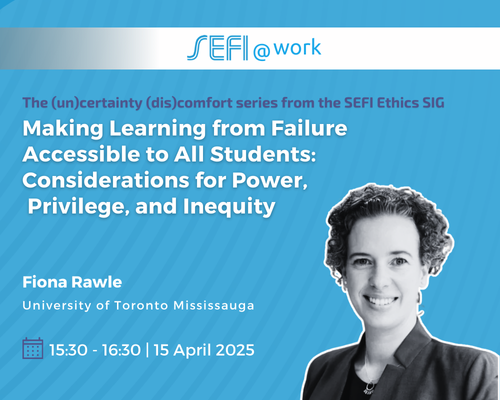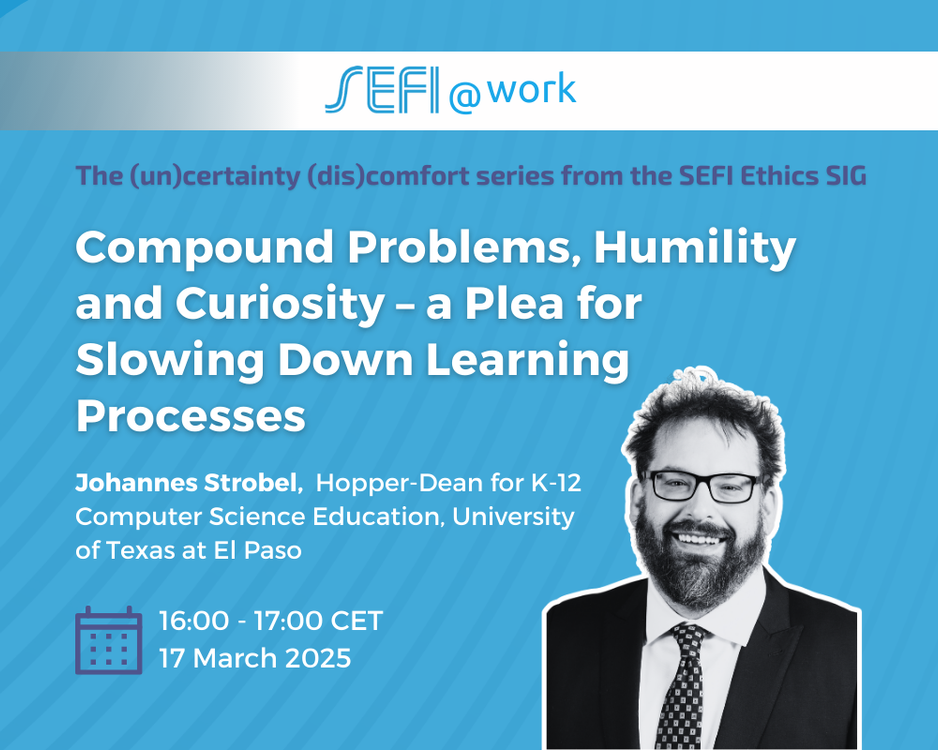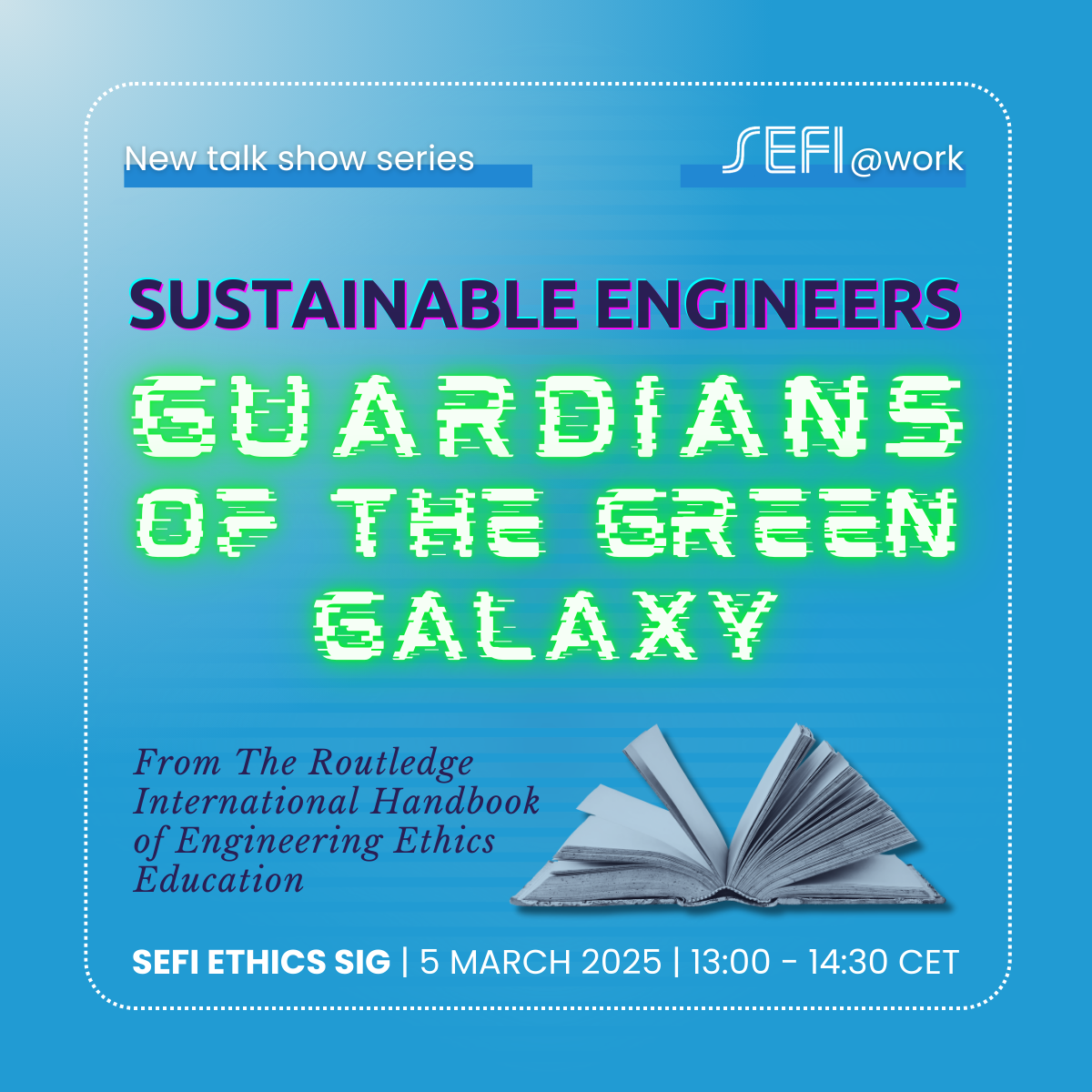15 April 2025, 15:30-16:30 CEST
This webinar will explore the impact that power, and privilege, and inequity play in one’s ability to embrace and learn from failure in the context of higher education.
Social intuitionism suggests engineering educators consider ethics education as a long-term socialization process

Purdue University, USA
Waking up in the morning, reading a newspaper or listening to a podcast, we encounter various social issues spanning from public health policy to hate crimes. In many cases, it doesn’t take much time to make a moral judgment about the social issues we read or hear about. Before we are asked to explain the reason for the judgment consciously, we rely on a quick moral intuition to decide what is right or wrong. For example, think of the word “terrorism.” What just happened to your mind? Did you just deliberately reason through why terrorism is wrong? Probably not.
Psychologist Jonathan Haidt1 argued that moral reasoning is a post-hoc justification generated after a judgment has been made by a quick moral intuition. If moral intuitions are that influential, then where do moral intuitions originate? Haidt suggested that moral intuitions are somewhat innate but not rigidly fixed, as these intuitions are malleable through long-term social interactions. This line of argument is often called social intuitionism.
Social intuitionism provides important insights to engineering ethics educators. If some intuitions are innate, educators need to understand what intuitions engineering students bring into the classroom and consider how to guide students with diverse moral backgrounds. If one’s moral intuitions change slowly through long-term social interactions, educators may need to approach engineering ethics education as the long-term facilitation of students’ professional socialization. Since professional socialization occurs in a professional culture, educators should also consider cultural influences on students’ moral formation.
To examine professional socialization in more detail, I created a new conceptual framework of moral formation by synthesizing the works of Lawrence Kohlberg, Martin Hoffman, and Jonathan Haidt with Emile Durkheim as a common thread2. I argued that the moral formation of nascent professionals is promoted by social discipline, which is a collective process within the profession that utilizes cultural influences to facilitate professional socialization. Further, I proposed that desirable social discipline incorporates both cognitive and affective aspects of learning.
In my dissertation project, I am using this conceptual framework to investigate the moral intuitions of engineering practitioners and students, and the relationships between those intuitions and other factors such as dispositional traits and moral narratives. I am especially looking at the interactions of intuitions, dispositional traits, and moral narratives with the culture of the organizations where the practitioners work and where the students study. I expect this project can contribute to a better understanding of engineers’ moral formation and how to effectively promote their professional socialization. Reflecting the context of engineering culture, engineering ethics education can begin the life-long professional socialization of aspiring engineers.
1 Haidt, J. The Righteous Mind: Why Good People Are Divided by Politics and Religion. New York, NY: Vintage Books. 2012.
2 Kim, D. Promoting professional socialization: A synthesis of Durkheim, Kohlberg, Hoffman, and Haidt for professional ethics education” Business and Professional Ethics Journal, to appear.


